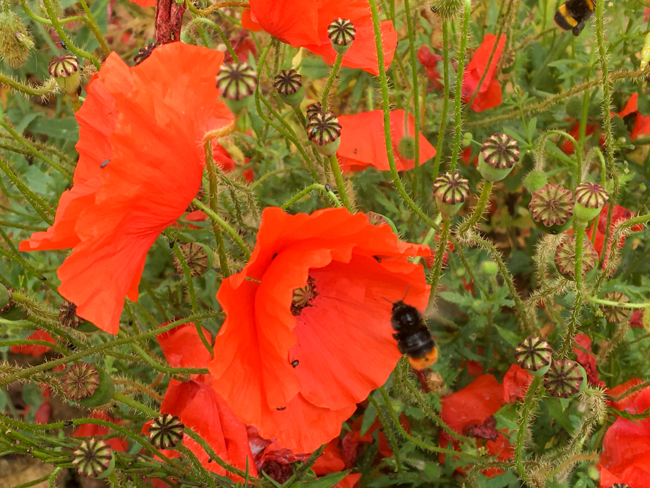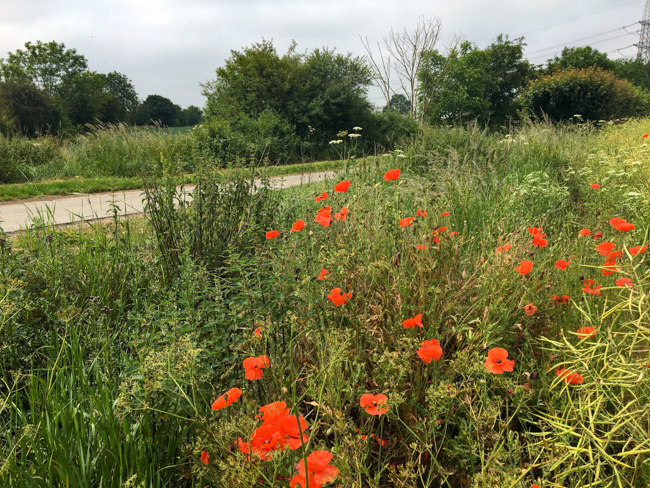Lest we forget that before becoming the iconic Remembrance, or Flanders, flower, the common poppy was that exuberantly fertile wildflower of our cornfields and a sighting of flame red rivers running through golden corn never failed to thrill – except for farmers, who through extensive use of herbicides all but managed to eradicate them. At the boundary edges of the mono-cropped fields of rapeseed, I discovered these:-

Pollen beetles or Meligethes aeneus love rapeseed oil flowers and since these have now gone to seed, they tiny insects were making the most of dark poppy pollen. And I’ve only recently learned that poppies do not produce nectar, just quantities of protein-rich pollen.

“Poppies open at dawn, and before they do, their anthers start to release pollen. By the following day, fully fertilised and depleted of pollen, the flower loses its petals…beetles, bees and bumblebees take advantage of the pollen bonanza offered by these short-lived flowers.”*

Thus it is not just for our eye-candy delights that poppies need to be left to flower – as all these pollinators in this one little patch of poppies verify.

Fortunately the poppy can survive following a dormancy of over 80 years and readily re-emerges on disturbed ground, such as building sites and road verges.

Moreover farmers are now getting paid to let fields lie fallow and hence the re-emergence of these fleetingly fragile flowers.
The wild corn poppy takes its species name ‘rhoeas’ from the Greek for red, while in the French vernacular, it was called ‘coquelicot’ and that name has come to perfectly define the bright red, orange tinted hue.

My iPhone 6 could not quite do the flowers justice so I shall leave Mary Oliver to have the final words of praise for ‘Poppies’:
The poppies send up their
orange flares; swaying
in the wind, their congregations
are a levitation
of bright dust, of thin
and lacy leaves…
…of course
loss is the great lesson.
But I also say this: that light
is an invitation
to happiness,
and that happiness,
when it’s done right,
is a kind of holiness,
A Friday Flowers post – something for the weekend!
Quotes from bugBlog: "Buzzing bees in poppies"
Further reading
Kew Science: Papaver rhoeas
